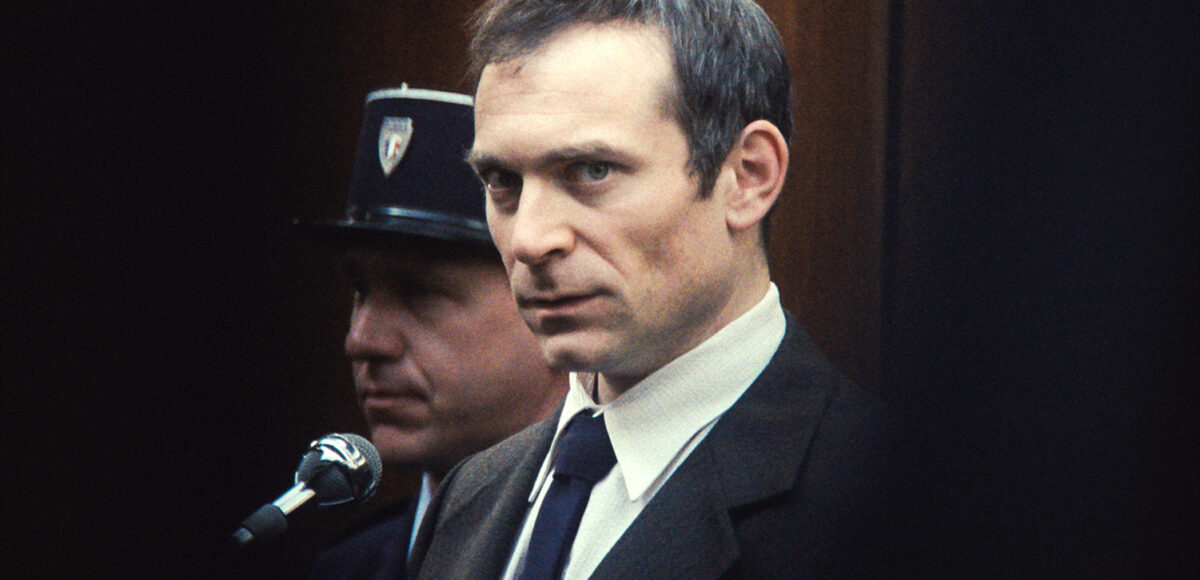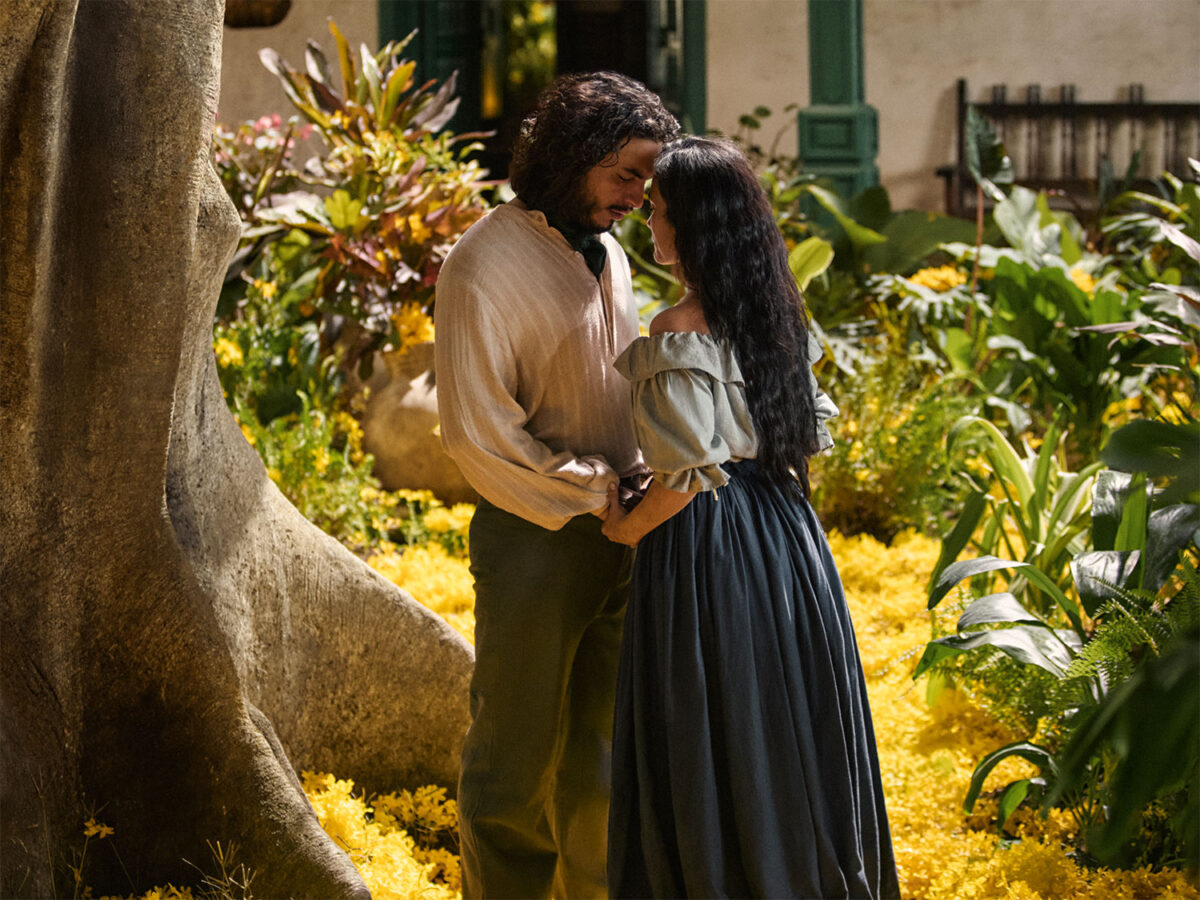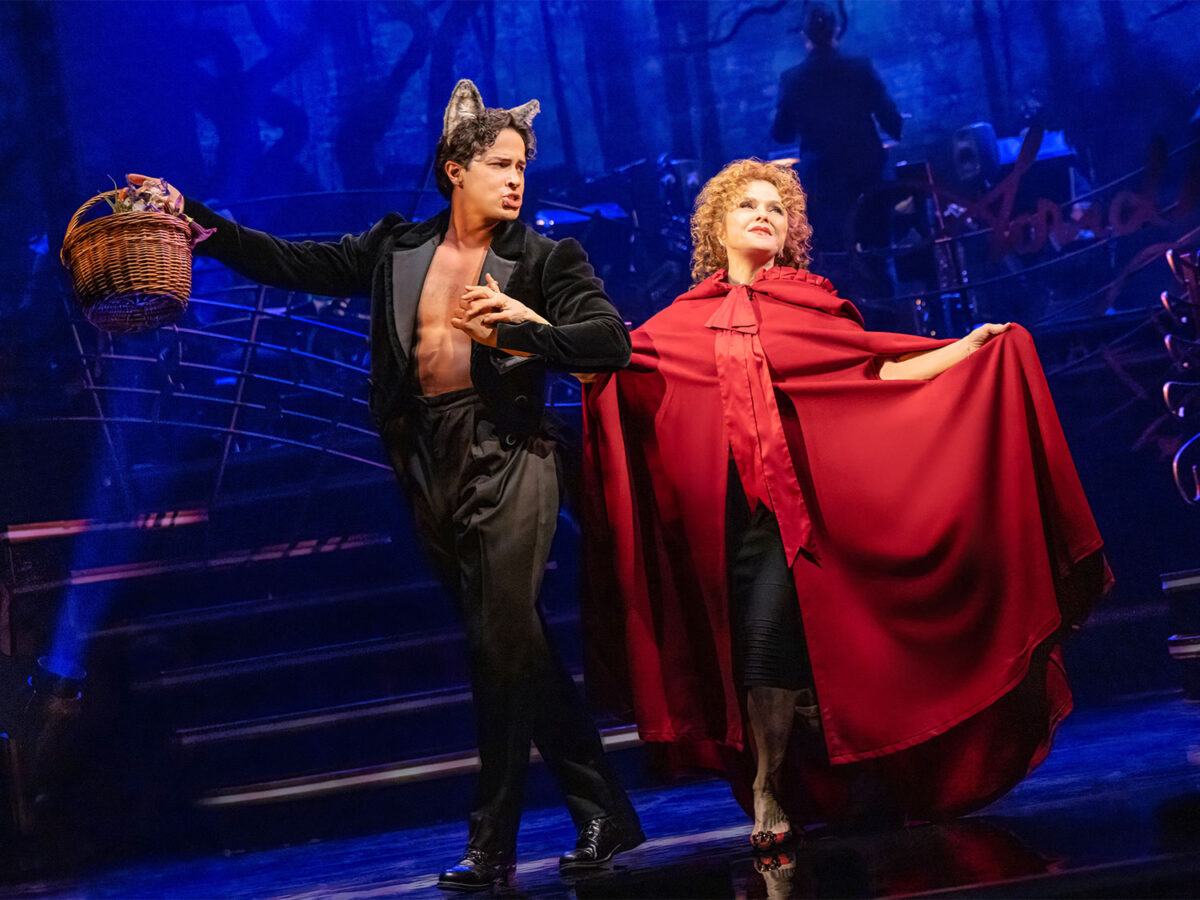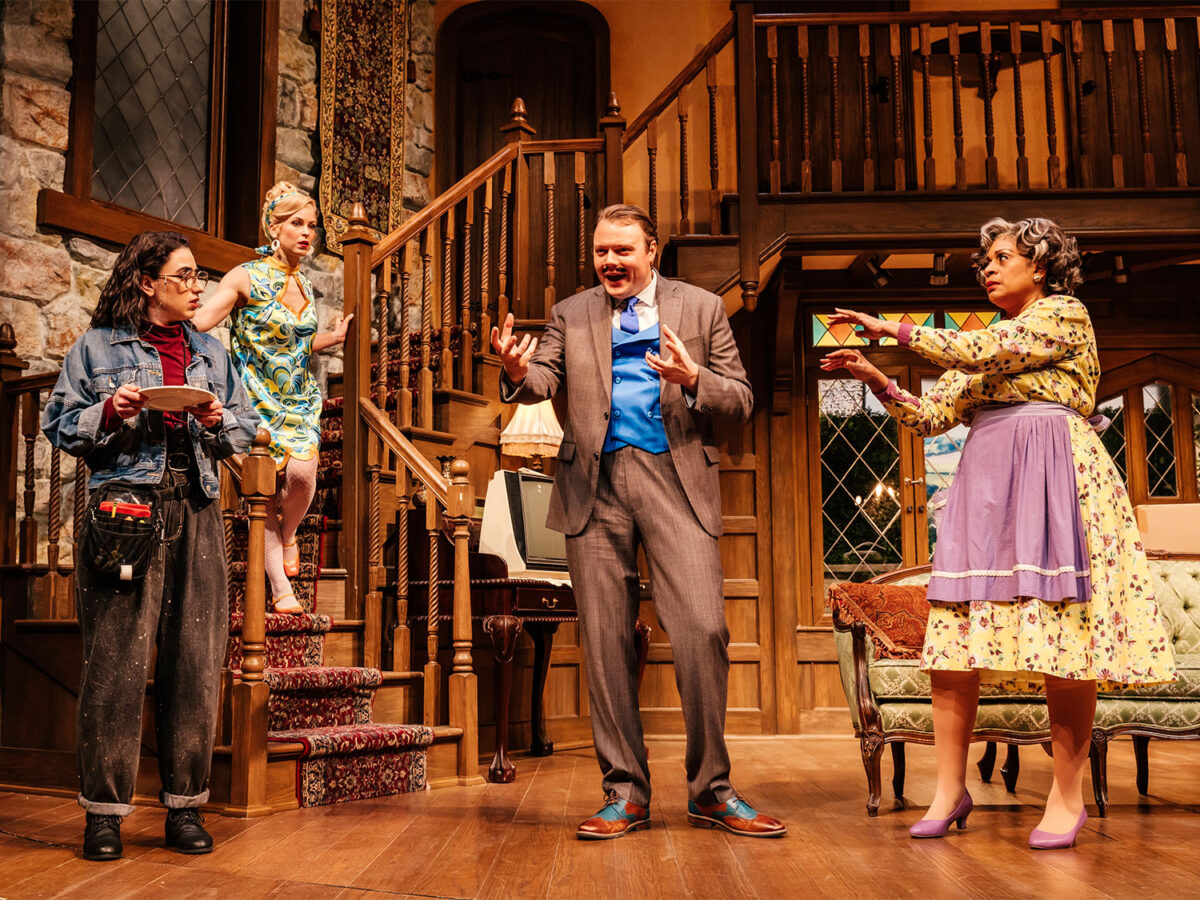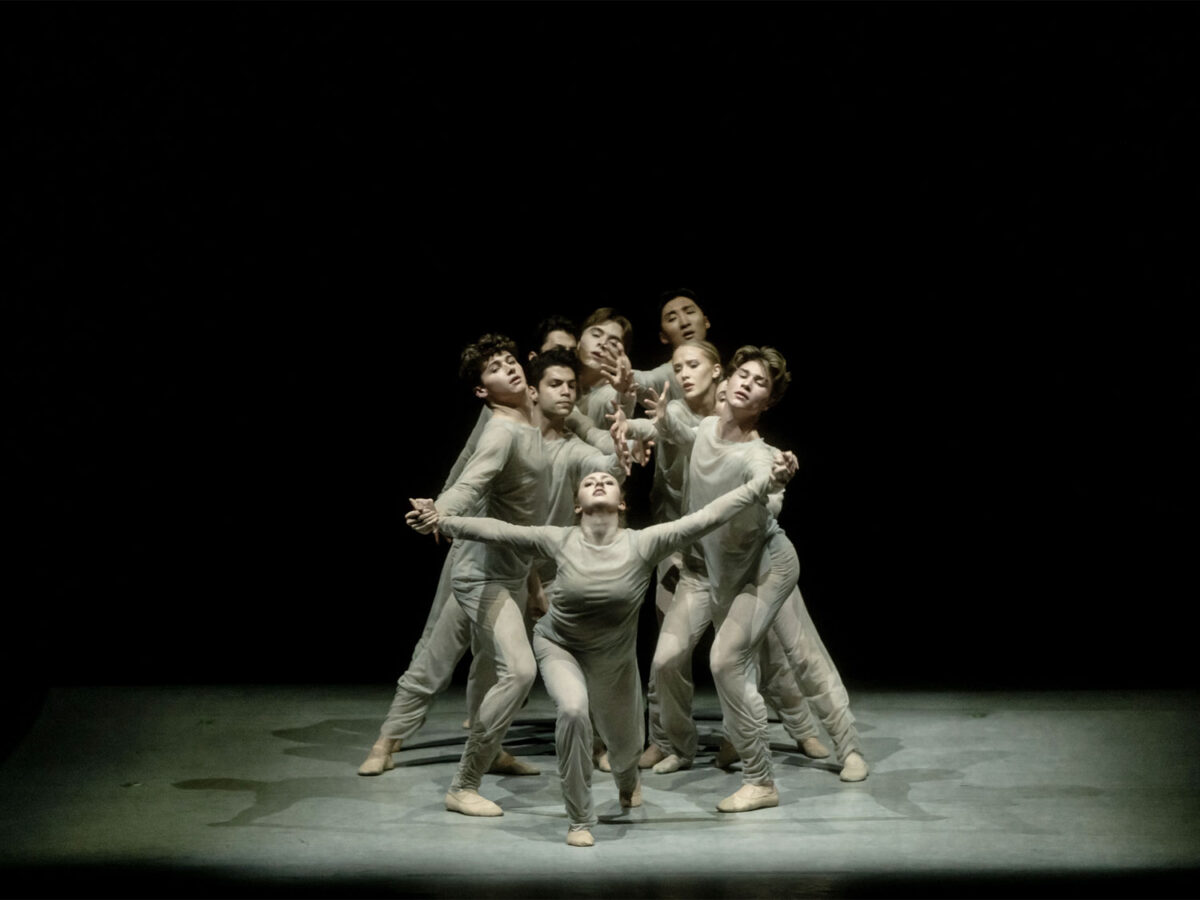“The Goldman Case” is the very definition of outstanding storytelling. Directed by Cédric Kahn, the French trial in 1975 against Pierre Goldman is laid before your feet, daring you to take the side of an unsympathetic, violent but quite possibly innocent defendant. It is as thrilling a film as you are likely to see this year, or any other for that matter.
Pierre Goldman, a far-left troublemaker and self-styled revolutionary, was convicted of a string of burglaries and the murder of two pharmacists during a robbery. He has always maintained that he neither robbed that business nor killed the victims. After a number of years in prison, his appeal on the murder charge has finally reached the court. He has long since confessed to the string of burglaries, all executed to support the radical organizations to which he belonged; but he has steadfastly denied any part in the murders. The decks are stacked against him with alleged eyewitnesses to the murders and police statements at the time.
He has also made his own road a difficult one to traverse because his antipathy to his own lawyer is seemingly insurmountable. His principal attorney, George Kiejman, is at a tremendous handicap because the mercurial Goldman insists on inserting himself in the trial, believing he can handle his own defense. He’s wrong but is intent on taking full advantage of the courtroom as his platform. Kiejman, an excellent attorney, is sidelined as often by his own client as he is by the prosecutor. It will be up to Kiejman to demonstrate the lack of solid evidence of the crime of murder despite his client’s outbursts and the manipulations by the odious opposing attorney, Maître Garaud, a master of distraction and confabulation.
Goldman is the star of this stage and is intent on making the most of his appearance. He has an animal magnetism that demands the attention of all around him. He had an alibi at the time, one that the police, through alleged intimidation, dismantled. They had found their perpetrator and nothing would deter them. Goldman decries the police and justice system, declaring them all to be racist and antisemitic. Shock reverberates throughout the courtroom with some spectators cheering and others aghast. But the justices and police in the courtroom loudly decry his statements. Saying that they are racist and antisemitic does not make them so, but it also does not make them not.
Goldman, a Holocaust survivor, was the French-born son of activist Polish Jews. His father was an honored member of the French resistance, his mother, a Communist activist, was eventually deported back to Poland after the war. Pierre had been looking for his cause for years, yearning for the kind of social commitment he saw in his parents. He found his purpose and radicalization in Venezuela where he joined an uprising. But timing is everything and he was too late. Returning to Paris, he turned to stealing to support his other radical causes. He readily admitted his guilt in a series of thefts, but he denied that he robbed the pharmacy and committed murder— an affront to his moral structure. What, the court asks, is his proof that he didn’t kill the innocent pharmacists? He states simply, “I am innocent because I am innocent.”
Ironically, Kiejman’s background was almost identical to that of Goldman. Also a Holocaust survivor and the French-born son of Polish Jews, he took a different path in life, one for which Goldman has nothing but disdain, seeing Kiejman as an apologist for the system, especially when he tried to mitigate Goldman’s blanket accusation of racism and antisemitism. He, like Goldman, is handicapped by the perception of his inferiority as a Jew, but the even heavier burden he carries is the visible contempt of his client.
“The Goldman Case” is based on an actual case although Nathalie Hertzberg and co-writer Kahn have taken a few liberties with the story, combining elements of Goldman’s two trials and using Goldman’s own memoir, written in prison. The vast majority of this story, however, was taken from the news reports of the time.
Hertzberg and Kahn have cleverly used this compelling trial to take a close look at the French judicial system. At this point in time, journalists were a strong, almost dominating presence in the courtroom, reporting on testimony and publishing tabloid-style opinion pieces often reflecting their own bias to move the public to their side.
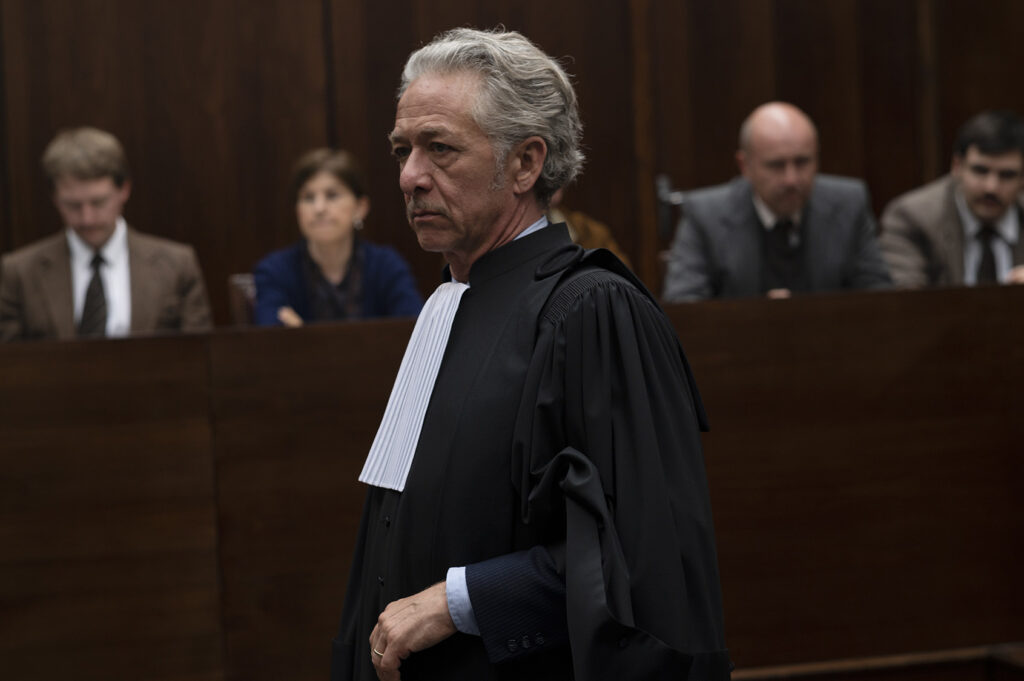
In “The Goldman Case” there were two prosecutors, one a lawyer and the other an agent for the state to represent the interests of society. Maître Garaud, the prosecuting attorney, is not hampered by the higher standards of the state’s representative, a subtle difference, but the behavior of both in the courtroom illustrates this dichotomy quite well. The defendant, Goldman, is represented by Kiejman and two other lawyers. The court is presided over by the judge referred to as the president. He is there to ask questions of the defendant and control the room as the opposing attorneys solicit the testimony of their witnesses. He does his best to maintain an unbiased view and is the very definition of “innocent until proven guilty,” a concept that is not native to the prosecutors. The jury is seated on both sides of the president, observing all testimony from a platform that gives them an unfettered view of the arguments and witnesses. The spectators, in this case, are partisan proponents of one side or the other, much like the members of the press whose writing reflects their own feelings. Members of the jury may pose questions or ask for clarification at any time; the prosecutors and defense attorneys often speak out of turn without consequence; and the defendant, in this case Goldman, may interrupt with his own comments, something he does often and contemptuously, undermining his own cause and cutting off the efforts of his attorney. It is the chaos of a democratic process without guardrails.
That more of the trial is not revealed here is deliberate. The stakes are high and the trial itself, when put in context of the post-radical time of the 1970s, following the mass civil disobedience of the late 1960s, provides an excellent view of a divided France where society seemed to be almost equally divided between the left and the right. It would be another five or six years before François Mitterrand would form a Socialist government, but the signs of change were already in evidence.
Khan filmed this story claustrophobically. Essentially all the action takes place within a courtroom, forcing the viewer to become part of the jury, experiencing the trial as they would, seeing and feeling the impassioned reactions of the spectators and watching Goldman as his body tenses in response to witnesses and the snide comments of Maître Garaud. You are there, literally and figuratively. Watching Goldman act out and passionately decry the systemic prejudice against him is visceral. He is guilty, you know it, but is he guilty of murder?
All of the actors are excellent with special mention to Stéphan Guérin-Tilliè who plays the president of the courtroom like a sophisticated and unruffled ringmaster. Nicolas Briançon as Maître Garaud is the antagonist and villain whose win-at-all-costs is what keeps Goldman railing against society. His sneer, his ability to turn any testimony against the defendant, and his condescending demeanor are a necessary foil to Kiejman’s efforts. Kiejman is played by Arthur Harari as a quiet, sophisticated but almost too coldly intellectual counterpoint to his contemptuous client. Harari was able to bring out the frustrations and complexities of a man who recognizes his similarities with his client but cannot reconcile them, all the while delivering the kind of defense that Goldman didn’t deserve. Harari, in one of his rare forays into acting, won the Academy Award last year for original screenplay for “Anatomy of a Fall,” a film that also reveled in the ambiguities of guilt and innocence.
There is no film without Arieh Worthalter as Pierre Goldman. His brilliance was in making a very unsympathetic man into a complex character whose very posture exhales an almost unjustified righteous indignation. He so thoroughly embodied a soul lost to already insignificant causes that it was impossible not to empathize a little with him even as he said odious things and acted unsympathetically. He fills the viewer with a tension that builds slowly until your teeth grind and your neck aches. His is a portrayal that will long be remembered and for it, he won the César Award (the French Oscar) as best actor.
This is a must-see film where questions are asked and few are answered. It is a character-driven narrative of great depth and complexity.
In French with English subtitles.
Opening Sept. 13 at the Laemmle Royal.



